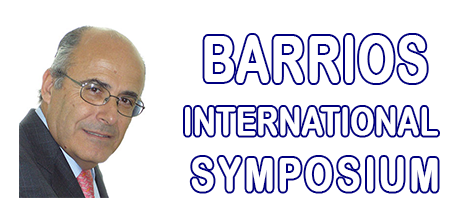ORAL
| SESSION: EnvironmentalWedAM-R5 | 6th Intl. Symp. on Environmental, Health, Policy, Legal, Management and Social Issues Related to Metals, Materials and Mineral Processing |
| Wed Oct, 25 2017 | Room: Peninsula 2 |
| Session Chairs: Ifije Ohiomah; Omeje Maxwell; Session Monitor: TBA |
12:30: [EnvironmentalWedAM04]
Supply Chain Risk and Resilience: A Practical Perspective Mahour
Parast1 ;
1NC A&T State University, Greensboro, United States;
Paper Id: 350
[Abstract] This presentation will provide an overview of the principles and antecedents of supply chain resilience. The presenter will share the relevant empirical and practical insights into supply chain risk and resilience. In addition, the findings of research in supply chain resilience and innovation will be discussed, as well as best practices for improving resilience for the firms in process industries.Topics include: enterprise and supply chain risk and resilience management; key dimensions of resilience; disruptions- relicense relationship; resilience for large vs. small firms; best practices in relicense in the chemical industry.
13:00 LUNCH
| SESSION: EnvironmentalWedPM-R5 | 6th Intl. Symp. on Environmental, Health, Policy, Legal, Management and Social Issues Related to Metals, Materials and Mineral Processing |
| Wed Oct, 25 2017 | Room: Peninsula 2 |
| Session Chairs: Flavio Aristone; Mahour Parast; Session Monitor: TBA |
14:30: [EnvironmentalWedPM05] Keynote
Technological Innovation in Industrial Bio-Materials Mahour
Parast1 ;
1NC A&T State University, Greensboro, United States;
Paper Id: 349
[Abstract] This is an interactive workshop on technological innovation in industrial bio-materials. The workshop provides an overview of the relatively unstructured process of technological innovation and entrepreneurship that are needed to translate new knowledge and inventions into marketable products and services. The workshop will review the fundamentals of the process of technological innovation based on the National Science Foundation (NSF) Innovation Corporation (I-Corps) model. The workshop reviews both the theoretical and practical aspects of the process of technological innovation, which is concerned with how to make the transition from an innovative idea, a product or a service to a company that serves customer needs. A case study will be presented to discuss the process of technological entrepreneurship and commercialization of the bio-adhesive technology. An interactive discussion with the attendees will be conducted to take them through developing their business model.
Audience: The workshop will benefit individuals who are involved in knowledge-based and technology-based innovations; those who are interested in learning about the process of innovation would greatly benefit from the workshop. The workshop would be of outmost interest to those who are involved in research and practice of innovation at both the public and private organizations. Most importantly, the workshop is suitable for researchers, professionals, and managers in industrial bio-based technologies or other industries who have developed a product in the lab, and plan to commercialize it.
Topics/Content: The workshop covers the process of technological innovation, known as the Lean Launchpad implemented in the NSF I-Corps model. The tentative topics include:
1: Intro, Business Models, Customer Development
2: Value Proposition
3: Customers segments
4: Channels
5: Customer Relationships
6: Revenue Model
7: Partners
8: Resources, activities, and costs
8: Cases and Best Practices
Learning Outcomes: As part of the workshop, each attendee will develop a customized business plan canvas to
�Create a business plan to translate their innovation from the lab to the market
�Recognize the steps needed to take in the entrepreneurship process
�Identify behaviors and skills, resources then need in the process of technological innovation
�Conduct market analysis, market segmentation
�Develop competitive and comparative advantage analysis
�Understand the importance of attention to both experimentation and exploitation
�Examine the role of customer discovery and understating the market needs
�Demonstrate the ability to find an attractive market that can be reached economically
�Create an appropriate business model
�Assess the commercial viability of a new technology or an innovation
�Develop the ability of transforming research based ideas into feasibility study







